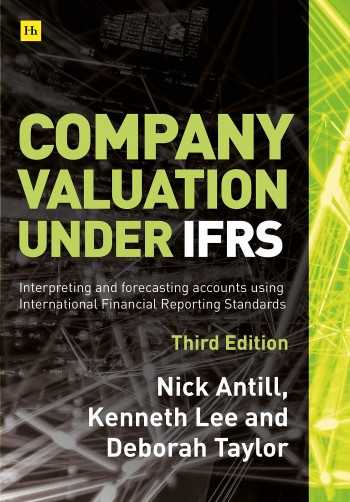BuchTipp – Company valuation under IFRS
Revised and updated.The influence of International Financial Reporting Standards (IFRS) on accounting across the world is stronger than ever. Most importantly, this stems from the mandatory adoption of IFRSs in many parts of the world, including Europe, Canada, Australia, Brazil and, with some relatively small exceptions, China. Additionally, foreign registrants in the US are also permitted to use IFRS by the SEC.
The impact of IFRSs also extends to accounting developments as the IASB and the FASB work closely together to formulate new standards such as those recently issued on leasing and revenue recognition. It is clear that investors, analysts and valuers need to understand financial statements produced under IFRS to feed in to their valuations and broader investment decisions.Written by practitioners for practitioners, the book addresses valuation from the viewpoint of the analyst, the investor and the corporate acquirer. It starts with valuation theory: what is to be discounted and at what discount rate? It explains the connection between standard methodologies based on free cash flow and on return on capital. And it emphasizes that, whichever method is used, accurate interpretation of accounting information is critical to the production of sensible valuations. The authors argue that forecasts of cash flows imply views on profits and balance sheets, and that non-cash items contain useful information about future cash flows – so profits matter.The book addresses the implications for analysis, modelling and valuation of key aspects of IFRS, all updated for recent developments, including:- Pensions- Stock options- Derivatives- Provisions- Leases- Revenue recognition- Foreign currencyThe text also sets out the key differences between IFRS and US GAAP treatments of these issues, in addition to their implications for analysis.A detailed case study is used to provide a step-by-step valuation of an industrial company using both free cash flow and economic profit methodologies. The authors then address a range of common valuation problems, including cyclical or immature companies, as well as the specialist accounting and modelling knowledge required for regulated utilities, resource extraction companies, banks, insurance companies, real estate companies and technology companies. Accounting for mergers and disposals is first explained and then illustrated with a detailed potential acquisition. This book is published by Harriman House Publishing – now available at amazon.

